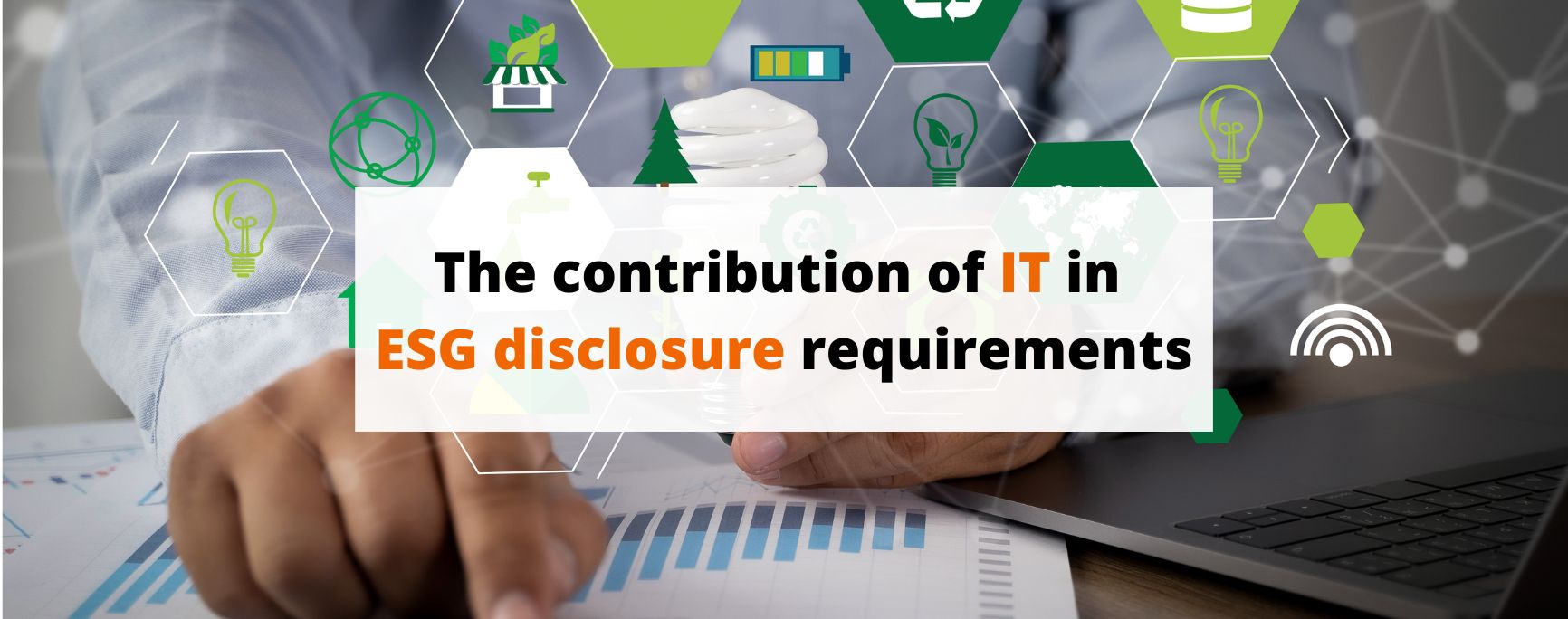
The contribution of IT in ESG disclosure requirements
The Canadian government has recently adopted amendments to the Canadian Business Corporations Act (CBCA) that require companies to disclose information on environmental, social, and governance (ESG) factors in their annual reports. IT can play a key role in ESG disclosure.
How to transform this obligation into an opportunity?


This amendment to the CBCA applies to all public companies (listed on the stock exchange) and private companies with a significant presence in Canada that meet certain size or revenue thresholds. Specifically, the targeted firms are those that meet at least two of the following three criteria:
• Assets of over 20 million dollars;
• Revenues of over 40 million dollars;
• Workforce of over 250 employees.
The companies affected by this requirement must include information on ESG factors in their annual report, including details about their environmental impact, social responsibility, and corporate governance. The disclosed information should be accurate, reliable, and useful for investors and other stakeholders. Information such as greenhouse gas emissions, energy consumption, waste management, and other aspects of their environmental impact must be disclosed.
It is important to note that the exact criteria may vary from province to province, as provincial securities authorities are responsible for implementing and enforcing ESG disclosure requirements for regulated companies within their jurisdiction.
While ESG disclosure is now mandatory, the Canadian government has not yet established specific standards. Adopting internationally recognized standards, such as the guidelines of the Global Reporting Initiative (GRI) or the Sustainability Accounting Standards Board (SASB), would enhance comparability between companies and facilitate analysis of ESG performance.
Many buyers are implementing incentives to encourage their suppliers to adopt ESG practices. Here are some examples of leadership positions taken by buyers in this field:
• Contractual Requirements: Buyers can include specific clauses related to ESG performance in their contracts with suppliers. These clauses may include greenhouse gas emission reduction targets, responsible waste management standards, the adoption of diversity and inclusion policies, or any other relevant ESG measures. Suppliers must meet these requirements to maintain their business relationship with the buyer.
• Evaluation of Suppliers’ ESG Performance: Buyers can establish processes to assess the ESG performance of their suppliers. This can include questionnaires, on-site audits, or third-party evaluations. Suppliers are evaluated based on specific ESG criteria, and those who perform well are favored in procurement decisions.
• Assistance and Advisory Programs: Some buyers offer technical assistance and guidance to suppliers who wish to improve their ESG practices. This can take the form of training programs, online resources, personalized advice, or the sharing of best practices. Buyers act as mentors, helping suppliers understand and implement ESG incentives.
• Recognition and Rewards: Buyers can implement recognition and reward programs for suppliers who excel in their ESG practices. This can take the form of annual awards, special certifications, or labeling programs. Suppliers who stand out receive recognition and increased visibility among other buyers.
• Information Technology (IT) can play a key role in enhancing ESG disclosure by helping companies collect, analyze, and present ESG information more effectively and transparently. Here are some specific examples:
• ESG Reporting Platforms: Companies can utilize ESG reporting platforms to collect, manage, and present their ESG information in a centralized manner. These platforms can help automate the data collection process, standardize ESG indicators, and generate standardized ESG reports. This can reduce administrative workload and facilitate ESG disclosure.
• Data Analytics: Companies can use data analytics tools to assess their ESG performance and identify areas for improvement. Data analytics tools can help identify trends and correlations in ESG data and generate visualizations to aid in presenting the results.
• Blockchain: Blockchain technology can contribute to improving the transparency and integrity of ESG information by creating an immutable audit trail for ESG data. Companies can use blockchain to record and verify ESG information, which can enhance stakeholders’ trust in the accuracy of disclosed information.
• Text Analysis: Text analysis tools can be used to extract ESG information from documents such as annual reports, press releases, and news articles. Companies can use these tools to monitor their online ESG reputation and identify potential issues before they become major problems.
Becoming a leader in ESG disclosure presents significant benefits, including enhancing reputation, accessing sustainable capital, improving risk management, fostering innovation, and increasing employee engagement. These advantages contribute to creating long-term value for the company and its sustainability in an evolving economic and social context.
The use of information technologies helps businesses improve their ESG disclosure by enabling them to collect, analyze, and present ESG information more effectively and transparently.
(This article was written in collaboration with Chat GPT – one main question and four sub-questions to clarify the concepts)
Subscribe to the Eficio newsletter and be the first to receive our news!

